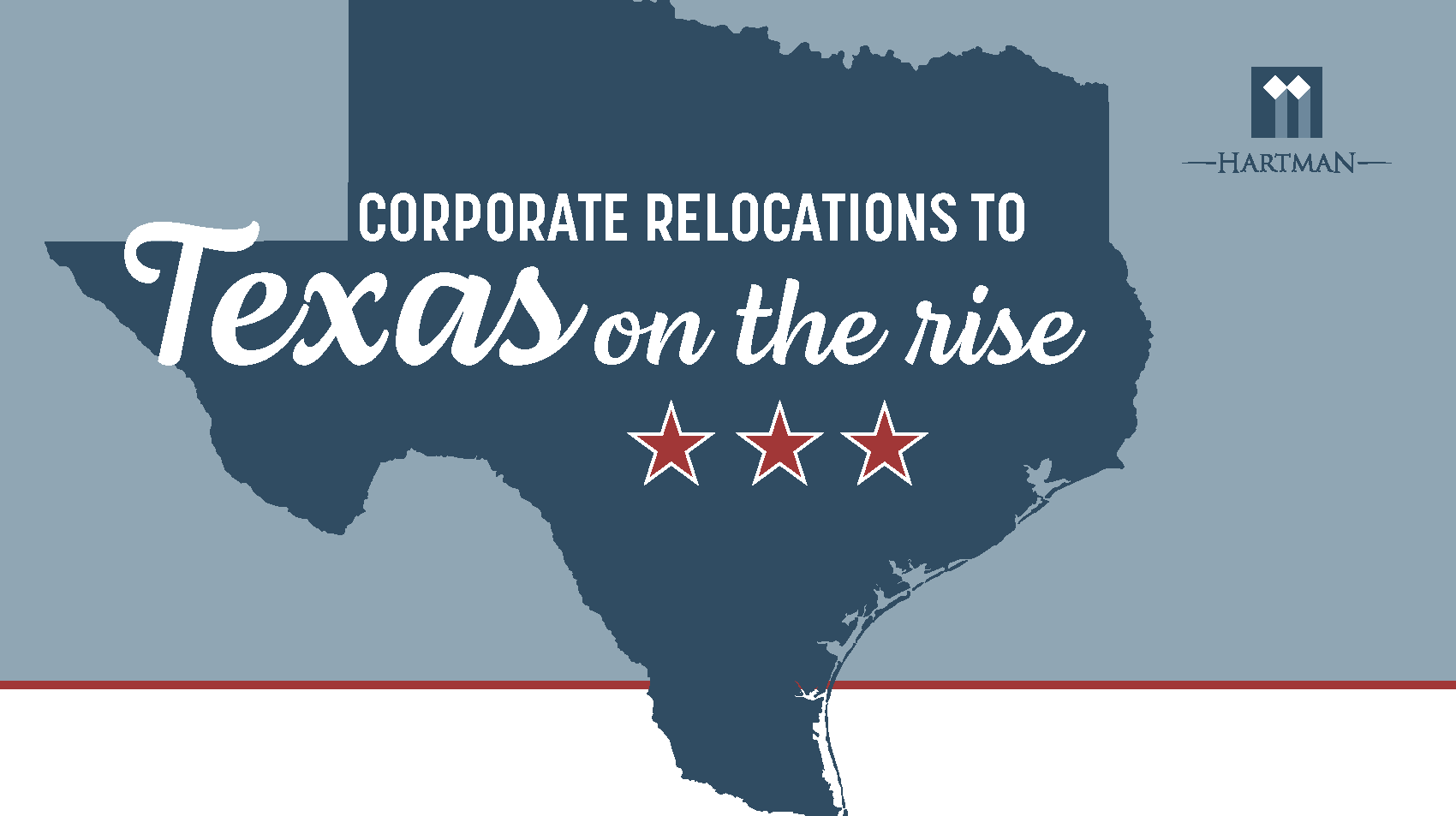|
When it comes to corporate relocations, Texas is hot, and we are not talking about the temperature or humidity. Companies from around the country are taking a hard look at moving to the Lone Star State. Tesla, Oracle, and Hewlett Packard Enterprises are just some of the big names making major moves into Texas, and it is not just a corporate, bottom-line decision. The Facts and Stats The International Economic Development Council regularly surveys corporate executives and for the eighth consecutive time since 1996, Texas was named the number one state for business in America. Executives cited the overall business climate, favorable tax situation, overall pro-business regulatory environment, and access to talent as key drivers. Looking at who has already made the move to Texas, hint, there’s an exodus from Silicon Valley:
The list goes on as California’s losses are Texas’s gains. The migration from California is not new but rather heightened. According to U.S. Census data, more than 687,000 Californians have moved to Texas since 2010. About 13% of new Texas residents have come from California. What are the Driving Factors? Texas is seeing more corporate relocations and expansions than it has in a long time. Other states that were hit hard by COVID-19 government shutdowns, gave CEOs pause and top executives began seeing opportunities when they looked at Texas. Metropolitan areas in Texas lead the nation getting people back in their offices. According to security company Kastle, nearly twice as many workers have returned to office buildings in Austin, Dallas, and Houston than in cities like New York and San Francisco. Economic development executives are currently monitoring nearly 200 active corporate relocations and expansions into Texas. Austin appears to be one of the main beneficiaries as the Austin Chamber of Commerce reports that 28 relocating companies created more than 9000 new jobs in 2020. That far outpaced 2019 and set a record for a single year. Recently, Pabst Brewing relocated from Los Angeles to San Antonio, citing great talent available at a lower cost. An executive said that San Antonio is filled with opportunity and creativity as well as a great talent pool, high quality of life, and is experiencing a cultural boom. Affordability makes it attractive to businesses and employees. In recent years, Dallas-Fort Worth has benefitted from the fundamentals of affordable home prices, lower costs of living, and low taxes. National brands like Charles Schwab, Deloitte, JP Morgan Chase, Liberty Mutual, McKesson, State Farm, and Toyota have either relocated or significantly expanded their operations. Texas makes a convincing case to move a company across the country. The drivers include:
Where Will Economic Growth Come From? With so many relocations to Texas, economic and industry growth is beginning to change in the state. While the energy sector remains a driver of the Texas economy, several other industries have begun to take a major foothold, particularly information technology. Aside from the companies named earlier, Dell, Texas Instruments, and Rackspace Hosting are all headquartered in Texas, while AT&T and others have significant presences. This activity has enabled Texas to rise above California as the nation’s top exporter of technology. Nowhere is the information technology trend more apparent than Houston which has developed a national reputation as the “Silicon Bayou.” Aside from Amazon, Google has built a presence there, capitalizing on the area’s wealth of innovation. Greentown Labs, a startup incubator for clean technology, chose Houston for its second location because of its reputation as the world’s energy capital. Associated high-wage jobs draw high-quality workers who need a place to live, so the construction and manufacturing industries are some of the fastest-growing sectors in the state. Housing starts and commercial construction are both on the rise. The addition of new residents with more disposable income and tourism comes the need for restaurants, bars, grocery stores, etc. Leisure and hospitality have become major drivers and it’s expected that the lodging industry will follow on an upward trajectory. Transportation continues as a major driver. Congress recently passed the 2020 Water Resources Development Act that formally authorized the expansion of the Houston Ship Channel. The port itself moved nearly 285 million tons of cargo in 2019. That’s almost 47 million tons more than any other U.S. Port and a 6% increase over the previous year. With more businesses moving to Texas after discovering the many benefits, look for corporate relocations to continue to increase through 2021-22 and to likely skyrocket in coming years. |
| About the Author: Al Hartman is the President, CEO, and Chairman of the Board of Directors at Hartman Advisors and the CEO of Hartman Income REIT Management, at Texas-based real estate investment trust. |
| Disclaimer: Hartman Advisors is an Associate member of TEXPERS. The views and opinions contained herein are those of the author, and do not necessarily represent the views of Hartman Advisors nor TEXPERS. These views are subject to change. Follow TEXPERS on Facebook, Twitter and LinkedIn as well as visit our website for the latest news about Texas' public pension industry. |
Oct
26
Share this post:


